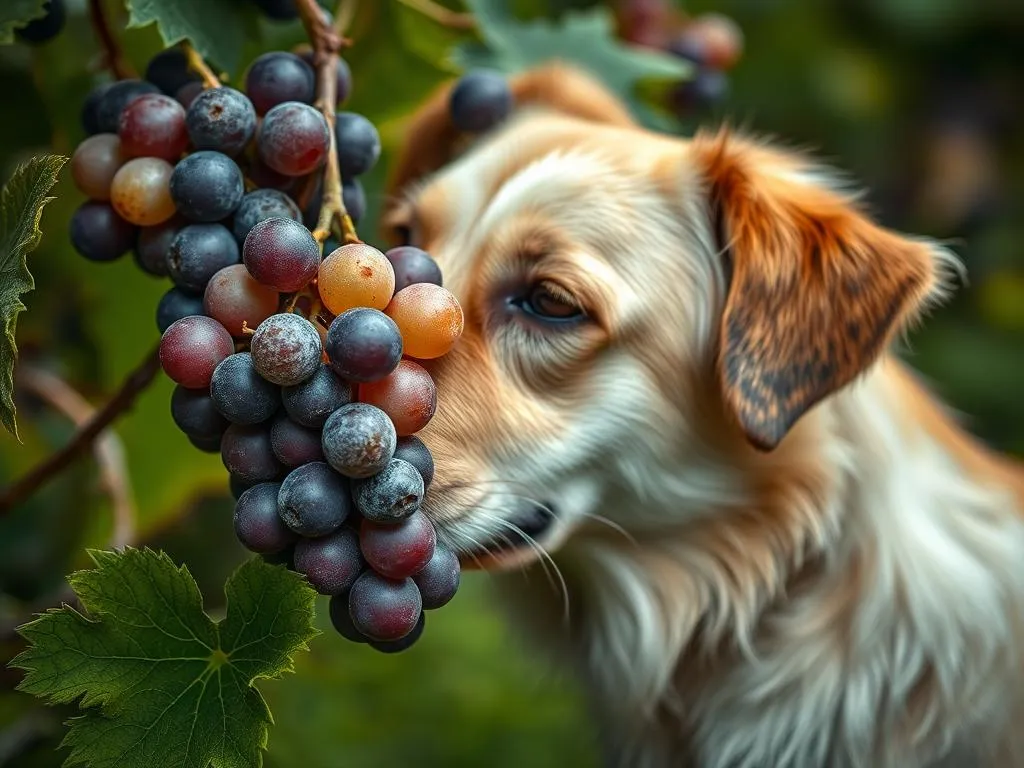
Introduction
Understanding dog health care is vital for every pet owner. As loving companions, our dogs rely on us to provide them with safe and nutritious food, ensuring their overall well-being. One of the most common concerns among pet owners is food safety—what can our dogs eat without risking their health? In this article, we will focus on a specific food item: grapes. A question that often arises is: are grapes toxic to dogs?
The objective of this article is to inform readers about the risks associated with grapes and how to ensure the safety of their pets. By understanding the potential dangers, we can make better decisions for our furry friends.
Understanding Dog Toxicity
What is Pet Toxicity?
Pet toxicity refers to the harmful effects that certain substances can have on animals, particularly dogs. These substances can range from common household items to specific foods that are safe for humans but dangerous for pets. Understanding which items are toxic is essential for every pet owner, as it helps prevent accidental poisoning and ensures a healthy environment for our dogs.
Common toxic substances for dogs include chocolate, onions, garlic, xylitol (a sugar substitute), and, of course, grapes. Recognizing these hazards is the first step in effective dog health care.
Symptoms of Toxicity in Dogs
Identifying the symptoms of toxicity in dogs can be crucial for timely intervention. Common symptoms include:
- Vomiting
- Diarrhea
- Lethargy
- Loss of appetite
- Abdominal pain
- Increased thirst or urination
If you notice any of these signs, it is essential to act quickly. Early recognition can often mean the difference between a mild reaction and a life-threatening condition.
Grapes and Their Toxic Effects on Dogs
Are Grapes Toxic to Dogs?
The short answer is yes, grapes are toxic to dogs. While not all dogs exhibit adverse reactions to grapes, the scientific consensus is that they can cause severe health issues, particularly kidney damage, even in small amounts. This inconsistency in reactions among different dogs makes it particularly challenging for pet owners to gauge the risk.
Some dogs may consume grapes without immediate effects, but others can develop serious complications. This unpredictability is one reason why it’s crucial for pet owners to avoid giving grapes to their dogs altogether.
The Mechanism of Toxicity
The exact mechanism of how grapes and raisins affect dogs is not fully understood. However, it is believed that they may cause acute kidney failure. When ingested, grapes can lead to a sudden increase in blood urea nitrogen (BUN) and creatinine levels, indicating kidney dysfunction. Symptoms such as vomiting, lethargy, and decreased appetite may manifest within hours of ingestion, necessitating immediate veterinary attention.
Research and Findings
Research into grape toxicity has revealed concerning statistics. According to a study conducted by the ASPCA Animal Poison Control Center, thousands of cases have been reported involving dogs that ingested grapes or raisins, with many resulting in serious health complications or death. Even small amounts can be hazardous, and there is no known safe threshold for grape consumption in dogs.
Identifying Risk Factors
Breed and Size Considerations
While grape toxicity can affect any dog, some breeds may be more susceptible, although comprehensive studies are lacking. Factors such as size and weight can also play a role in how much of a toxic substance, like grapes, can affect a dog. Smaller dogs may experience severe reactions from ingesting fewer grapes compared to larger breeds.
Amounts and Forms
Interestingly, the type of grape consumed can affect the level of toxicity. Fresh grapes, dried grapes (raisins), and grape juice all pose risks, but raisins appear to be particularly dangerous. Even a small quantity of raisins can lead to severe complications, making it crucial for dog owners to be vigilant about their pets’ diets.
What to Do If Your Dog Eats Grapes
Immediate Steps to Take
If you suspect that your dog has consumed grapes, the first step is to remain calm. Assess how much your dog has ingested and when it occurred. Contact your veterinarian immediately to discuss the situation. They may instruct you to induce vomiting, especially if the ingestion was recent.
Veterinary Treatments and Interventions
Veterinary treatment may include inducing vomiting, administering activated charcoal to limit further absorption of toxins, and providing supportive care such as intravenous fluids. Monitoring kidney function through blood tests will also be crucial in the days following ingestion. Early intervention can significantly improve the prognosis for dogs that have ingested grapes.
Preventing Grape Toxicity
Safe Foods for Dogs
To ensure your dog remains healthy, it’s essential to know which foods are safe. Here’s a list of safe fruits and vegetables for dogs:
- Apples (without seeds)
- Carrots
- Blueberries
- Bananas
- Pumpkin
These options provide healthy nutrients and can serve as enjoyable snacks without the risks associated with grapes.
Educating Others
Education is key in preventing grape toxicity. Share information about the dangers of grapes with family, friends, and anyone who interacts with your dog. Encourage others to read labels carefully when selecting dog food and treats to avoid accidental ingestion of harmful ingredients.
Creating a Safe Environment
Pet-proofing your home is an essential aspect of dog health care. Ensure that grapes and other toxic foods are stored out of reach. Dispose of food waste properly and educate family members about the importance of not feeding dogs human food, particularly items that are known to be dangerous.
Alternative Treats for Dogs
Healthy Snack Options
When it comes to dog treats, there are many safe alternatives to grapes. Incorporating a variety of healthy snacks into your dog’s diet can enhance their nutrition and keep them happy. Here are some great options:
- Carrot sticks
- Apple slices (without seeds)
- Frozen blueberries
- Sweet potato chews
These treats are not only safe but also beneficial for their health.
Homemade Treat Recipes
Creating your own dog treats can be a fun and rewarding endeavor. Here’s a simple recipe for healthy, dog-friendly treats:
Peanut Butter and Banana Dog Biscuits
Ingredients:
- 1 ripe banana
- ½ cup peanut butter (ensure it’s xylitol-free)
- 2 cups whole wheat flour
- 1 egg
- 1 tablespoon honey (optional)
Instructions:
1. Preheat your oven to 350°F (175°C).
2. In a mixing bowl, mash the banana and combine it with peanut butter, egg, and honey.
3. Gradually add the whole wheat flour until a dough forms.
4. Roll out the dough to about ¼ inch thick and cut it into desired shapes.
5. Place on a baking sheet and bake for 20-25 minutes or until golden.
6. Allow to cool before serving to your dog.
Remember, moderation is key, even with safe treats.
Conclusion
In summary, are grapes toxic to dogs? Yes, they are, and the consequences of ingestion can be severe. The key takeaways from this discussion involve understanding the risks associated with grapes, recognizing the symptoms of toxicity, and knowing how to respond promptly if your pet consumes them.
Being vigilant, informed, and proactive in educating others are critical components of effective dog health care. Always consult with your veterinarian for personalized dietary advice and to ensure your furry friend remains healthy and happy. With the right knowledge and precautions, we can protect our beloved pets from unnecessary harm.









